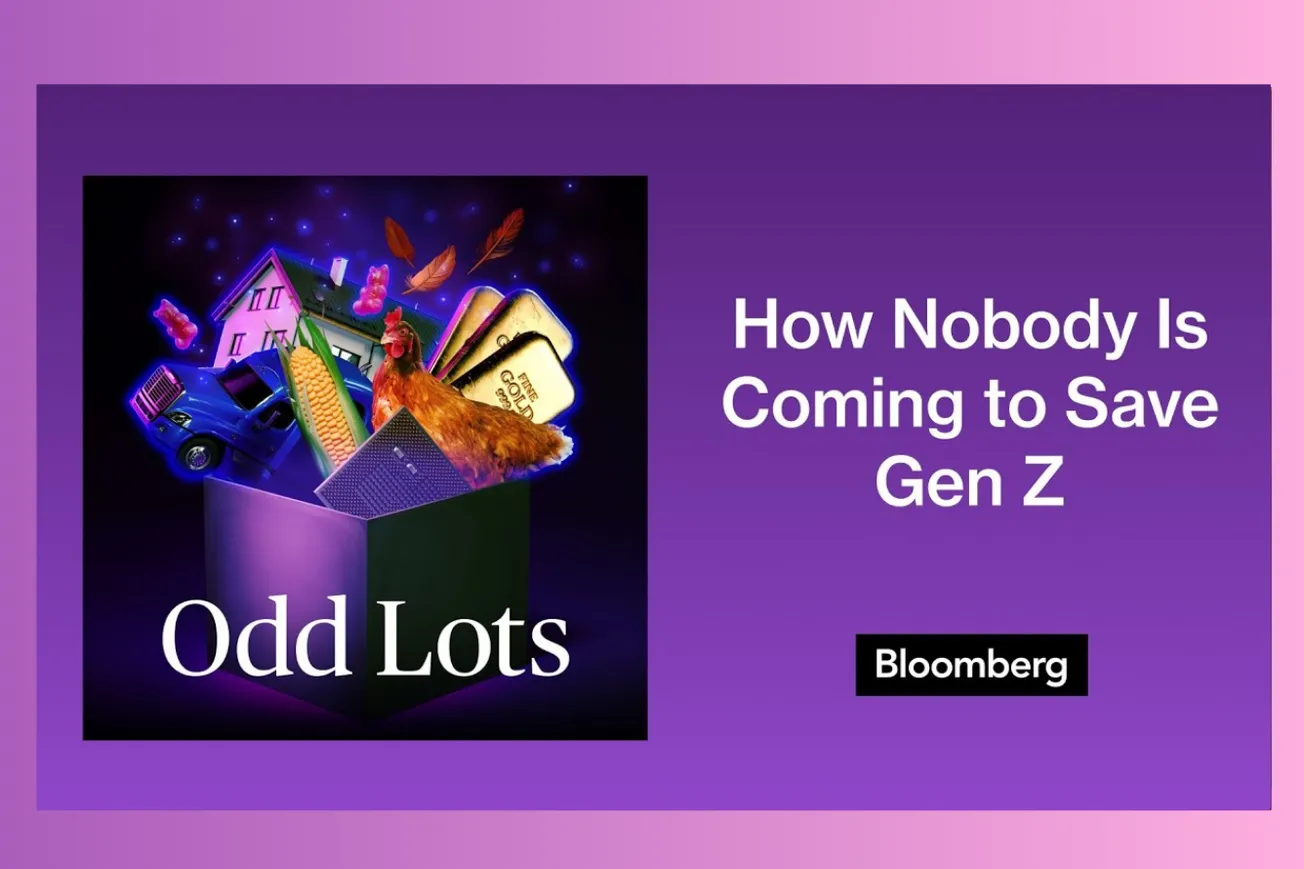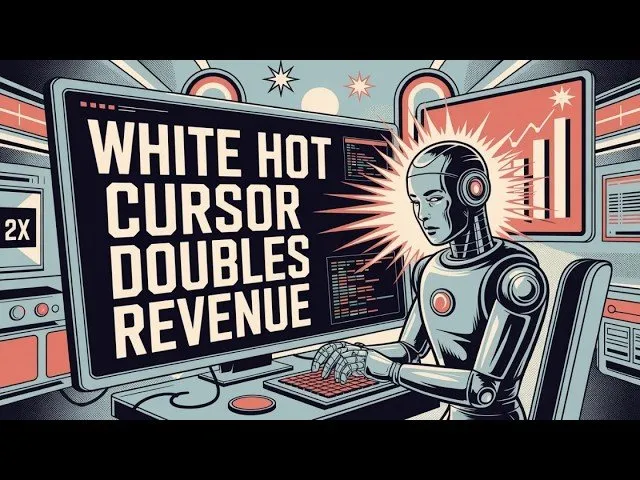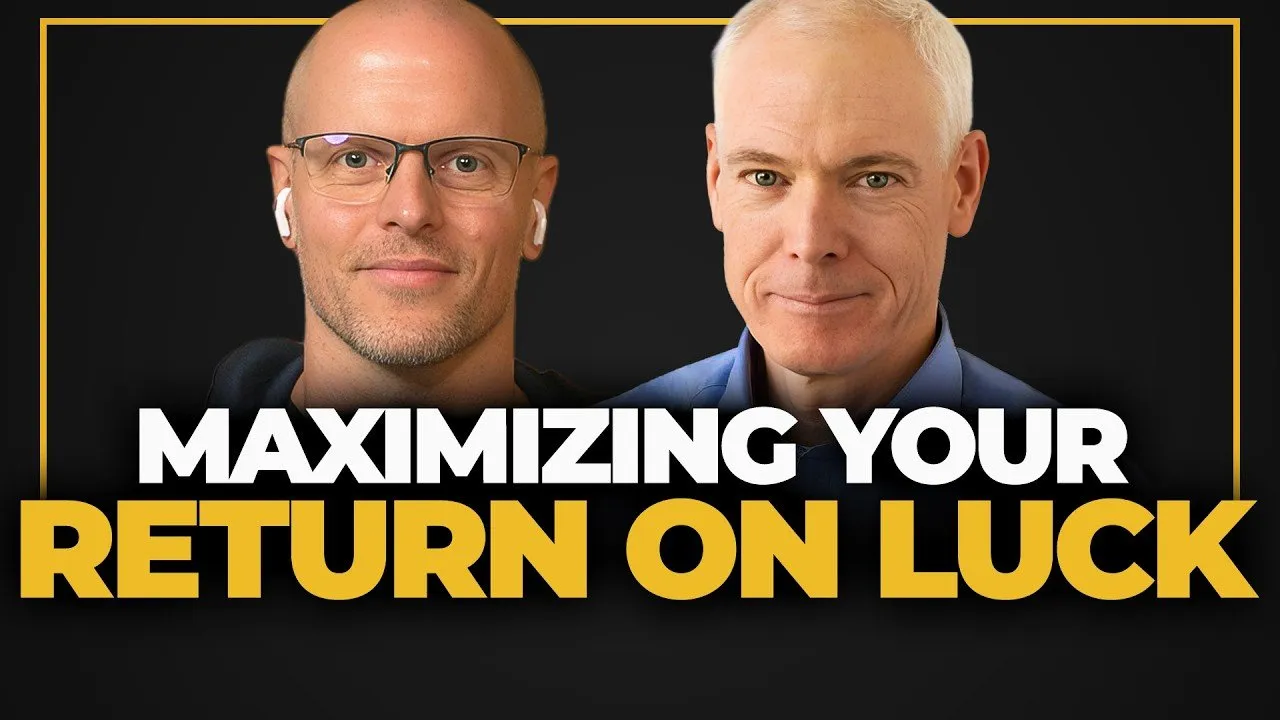Table of Contents
Emily Sundberg of FeedMe newsletter reveals how Gen Z's relationship with capitalism differs dramatically from millennials—and why they're spending money they don't have while chasing creator economy dreams.
Key Takeaways
- Gen Z operates under a "nobody is coming to save you" mentality, driving aggressive money-making attitudes without millennial-style guilt about capitalism
- The creator economy offers unprecedented income potential, with some influencers earning more from TikTok content than Goldman Sachs analysts make in salaries
- Flat corporate structures eliminate traditional career advancement paths, pushing young people toward entrepreneurial alternatives and lottery-ticket investments
- Consumption patterns show extreme homogeneity, with entire graduations wearing identical $800 Gucci sandals and following the same influencer recommendations
- Buy-now-pay-later culture enables spending beyond means, justified by "the world is burning" philosophy and diminished homeownership expectations
- AI job displacement fears compound traditional economic anxiety, accelerating the search for alternative income streams and financial security
- Wedding culture has evolved from bride-focused events to individual guest performance opportunities, expanding invitation lists and gift expectations
- Social media creates unprecedented transparency around peer wealth, generating competitive pressure and FOMO-driven financial decisions
- Bootstrap entrepreneurship replaces venture capital enthusiasm as young people learn about equity dilution and investor return expectations
The "Nobody Is Coming to Save You" Generation
Emily Sundberg's analysis reveals a fundamental shift in how young people approach economic security, driven by repeated messages that traditional safety nets no longer exist.
- Gen Z graduates into job markets with limited opportunities, often facing remote work without traditional office environments or clear advancement structures
- School shootings, COVID disruptions, and economic instability reinforce the message that external systems cannot provide reliable protection or support
- This mentality drives a "get the bag while the world is still here" approach to money-making that contrasts sharply with previous generational attitudes
- Survey data shows Gen Z believes they need $500,000 salaries for a good life, compared to $70,000 expectations from other generations
- The combination of existential threats and economic uncertainty creates urgency around wealth accumulation that previous generations didn't experience
- Unlike millennials who often felt guilty about wanting money, Gen Z embraces wealth-building as necessary survival strategy without moral ambivalence
- Traditional career paths appear unreliable, pushing young people toward alternative income sources and entrepreneurial ventures as primary strategies
- This perspective shapes everything from investment choices to spending patterns, with immediate gratification balanced against long-term uncertainty about system stability
The result is a generation that treats capitalism not as an ideology to embrace or reject, but as a tool for personal survival in an unpredictable world.
Creator Economy Gold Rush: When TikTok Pays More Than Wall Street
The emergence of creator economy opportunities fundamentally changes how young people think about career paths and income potential, offering alternatives to traditional employment that can exceed conventional high-paying jobs.
- Goldman Sachs analysts creating "day in the life" TikTok content often earn more from social media than their base salaries at prestigious financial institutions
- The creator marketing industry alone reaches $33 billion, representing massive economic opportunity for individuals willing to build personal brands
- Role models for young people increasingly include influencers who generate millions annually through online content creation rather than traditional business leaders
- Social media platforms provide democratized access to income generation, allowing anyone with creativity and persistence to potentially achieve significant earnings
- The public nature of creator success creates visible proof that alternative career paths can generate substantial wealth, inspiring widespread participation attempts
- This visibility also creates stress through constant comparison with peer earnings, as platforms make income levels more transparent than traditional employment
- Young people increasingly view traditional jobs as backup plans rather than primary career objectives, focusing energy on building personal brands and online presence
- The combination of accessibility and high earning potential makes creator economy pursuits attractive even when requiring significant time investment without guaranteed returns
This shift represents more than just new job categories—it's a fundamental restructuring of how young people approach career planning and financial independence.
Flat Hierarchies and the Death of Career Ladders
Corporate America's evolution toward flatter organizational structures eliminates traditional advancement paths that previous generations relied on for economic mobility and career satisfaction.
- Meta's Roman numeral ranking system exemplifies modern corporate structures where advancement levels offer minimal financial improvement—moving from level four to five adds only $20,000, insufficient for lifestyle changes
- Young employees struggle to aspire to positions held by colleagues only two levels higher, as the advancement doesn't appear worth additional effort or time investment
- AI and automation threats compound career uncertainty, with copywriters and finance professionals facing potential mass layoffs and job displacement
- Traditional corporate benefits like clear promotion timelines and substantial salary increases disappear in favor of smaller, incremental adjustments
- The flat structure problem extends beyond individual companies to entire industries, reducing opportunities for meaningful career progression across sectors
- Young professionals entering these environments quickly recognize limitations and redirect energy toward external opportunities rather than internal advancement
- This realization drives entrepreneurial thinking and side-hustle culture as alternatives to corporate advancement become more attractive than staying within system constraints
- The breakdown of traditional career progression models forces individuals to create their own advancement through business ownership, personal branding, or alternative income streams
The result is a generation that views corporate employment as temporary stepping stones rather than long-term career foundations.
The Homogeneity Paradox: $800 Sandals and Identical Aesthetics
Gen Z's consumption patterns reveal a surprising embrace of aesthetic uniformity that contrasts sharply with previous generations' emphasis on individual expression and personal style development.
- Entire graduation ceremonies feature students wearing identical $800 Gucci sandals, suggesting coordinated consumption patterns that transcend regional or economic differences
- The West Village aesthetic phenomenon extends nationally, with young people in flyover states and major cities adopting identical fashion choices and lifestyle markers
- Millennials prioritized individual expression through unique music, personal Tumblr aesthetics, and diverse style choices that supported small brands and niche markets
- Current consumption involves "checking off boxes" of specific items that signal membership in the target demographic rather than expressing personal creativity
- Amazon storefronts and influencer marketing create synchronized purchasing patterns as followers buy identical products promoted by the same content creators
- Viral fashion items like hot pink Tory Burch mirror dresses sell out immediately after social media exposure, with buyers embracing rather than avoiding duplication
- The comfort with identical appearance suggests different values around individual expression and social belonging than previous generations maintained
- This trend supports fewer, larger brands rather than diverse small businesses, concentrating economic impact in major corporate entities
The shift from diversity to uniformity represents a fundamental change in how young people approach identity expression through consumption choices.
Buy Now, Pay Later: Spending Money You Don't Have
Financial behavior patterns among young people reveal widespread adoption of debt-financed consumption justified by philosophical and practical considerations about future prospects.
- Buy-now-pay-later services extend beyond major purchases to daily expenses like food delivery, enabling routine overspending on basic necessities
- The "world is burning" philosophy justifies immediate gratification over long-term financial planning, with spending decisions based on apocalyptic rather than traditional economic reasoning
- Diminished homeownership expectations eliminate traditional savings motivations, as young people conclude they'll never earn enough for major purchases regardless of saving behavior
- Credit card debt levels remain unclear, but observable spending patterns suggest widespread financing of lifestyles that exceed actual income levels
- Dating app dysfunction reduces family formation expectations, eliminating another traditional motivation for long-term financial planning and savings accumulation
- Jobs that historically supported current lifestyle spending levels pay significantly less than lifestyle costs, creating structural gaps between income and consumption expectations
- The combination of lifestyle inflation and income stagnation forces debt financing as the primary method for maintaining desired living standards
- Social media pressure compounds financial stress by creating visible comparisons with peer spending and lifestyle choices
This approach to personal finance reflects both resignation about future prospects and determination to maintain quality of life despite economic constraints.
Entrepreneurship Without the Venture Capital Dreams
Young entrepreneurs increasingly embrace bootstrap approaches and resist venture capital involvement as awareness grows about equity dilution and investor return expectations.
- The "girl boss" era of enthusiastic venture capital acceptance gives way to more cautious approaches as young people learn about the implications of external investment
- Modern entrepreneurs prefer attaching to friends for collaborative ventures that can fail quietly without massive public investment announcements
- Understanding that investors expect returns leads to preference for maintaining control and accepting slower growth over rapid scaling with external funding
- Failed ventures get brushed aside more easily when personal rather than investor capital is at risk, reducing psychological and financial consequences of business experiments
- This shift reflects maturation in understanding business fundamentals rather than naive enthusiasm about startup culture and venture capital mystique
- Bootstrap approaches align with the "nobody is coming to save you" mentality by maintaining self-reliance rather than depending on external funding sources
- The change also reflects observation of previous generation failures where venture capital relationships didn't produce expected outcomes for entrepreneurs
- Young entrepreneurs increasingly view business ownership as long-term wealth building rather than exit strategy opportunities for quick financial returns
This evolution toward self-funded entrepreneurship represents more realistic understanding of business fundamentals and investor relationships.
Gen Z's approach to capitalism reflects a pragmatic response to economic realities rather than ideological positions about market systems. Their comfort with money-making stems from necessity rather than greed, while their consumption patterns balance immediate gratification against uncertain futures. The generation's embrace of alternative income sources and bootstrap entrepreneurship demonstrates adaptation to changing economic structures rather than rejection of traditional work entirely.





